Tax season can be a stressful time, but with the right preparation, you can make the process much easier. This guide will provide you with essential tips for preparing for tax season, ensuring you have everything in order for a smooth filing experience. By organizing your documents, staying informed, and seeking professional help when needed, you can approach tax season with confidence and reduce the stress that often comes with it.
Key Takeaways
- Start getting organized early to avoid last-minute stress.
- Keep personal and business expenses separate to simplify your filing.
- Consult a tax professional for guidance and to maximize your deductions.
Get Your Ducks in a Row: Organizing for Tax Season
Tax season is like a game of hide and seek, but instead of hiding, you’re trying to find all those pesky documents! Getting organized is your secret weapon to make this process smoother. Here’s how to tackle it:
Create a Checklist of Required Documents
Start by making a checklist of everything you need. This will help you avoid the last-minute scramble. Here’s a quick list to get you started:
- W-2s and 1099s for income
- Receipts for deductible expenses
- Bank statements
- Investment documents
Organize Your Receipts Like a Pro
Receipts can be like confetti after a party—everywhere! To keep them in check, try these tips:
- Use folders (physical or digital) to categorize them.
- Label them by month or type of expense.
- Consider using an app to scan and store them.
Separate Personal and Business Expenses
Mixing personal and business expenses is like mixing oil and water—it just doesn’t work! Keep them separate to avoid headaches later. Use different accounts or credit cards for each to make tracking easier.
Digitize Your Paperwork for Easy Access
Going paperless can save you time and space. Scan important documents and store them in the cloud. This way, you can access them anytime, anywhere. Plus, it’s easier to share with your tax professional if needed.
Remember, staying organized is not just about avoiding stress; it’s about maximizing your deductions and ensuring you don’t miss anything important!
Avoiding the Tax-Time Crunch: Smart Strategies

Start Early to Dodge the Deadline Drama
Don’t wait until the last minute! Starting early gives you the time to gather your documents and avoid the stress of a last-minute rush. Here’s how to kick things off:
- Set a date on your calendar to start your tax prep.
- Gather all necessary documents as they come in.
- Create a checklist to keep track of what you have and what you still need.
Automate Your Expense Tracking
Why do things the hard way? Automating your expense tracking can save you tons of time and headaches. Consider these options:
- Use apps like Mint or QuickBooks to track expenses automatically.
- Set up recurring transactions for regular expenses.
- Sync your bank accounts to keep everything updated without lifting a finger.
Stay Updated on Tax Law Changes
Tax laws change more often than you change your socks! Staying informed can help you avoid costly mistakes. Here’s what to do:
- Subscribe to tax newsletters or follow IRS updates.
- Join online forums or groups where tax changes are discussed.
- Consult a tax professional if you’re unsure about new laws.
Consult a Tax Professional for Peace of Mind
Sometimes, it’s best to leave it to the pros. Consulting a tax professional can help you navigate the complexities of tax season. Here’s why:
- They can spot deductions you might miss.
- They’ll keep you compliant with the latest tax laws.
- You’ll have peace of mind knowing your taxes are in good hands.
Remember, a little preparation goes a long way! By following these strategies, you can make tax season a breeze instead of a headache. So, roll up your sleeves and get started!
Maximize Your Deductions: Tips and Tricks

Understand Available Tax Credits
When it comes to tax season, knowing your credits can be a game changer. Tax credits directly reduce your tax bill, so make sure you’re aware of what’s out there! Common credits include:
- Earned Income Tax Credit (EITC)
- Child Tax Credit (CTC)
- Education Credits (like the American Opportunity Tax Credit)
- Energy Efficiency Credits
- Child and Dependent Care Credit
Keep Track of Charitable Contributions
If you’re feeling generous, don’t forget to keep tabs on your charitable donations! You can deduct these contributions, but you need to have proof. Here’s how to stay organized:
- Save receipts for every donation.
- Keep a record of the charity’s name and the date of your contribution.
- If you donate items, note their fair market value.
Leverage Retirement Contributions
Contributing to retirement accounts isn’t just good for your future; it can also help you save on taxes now! Contributions to IRAs or 401(k)s can lower your taxable income. So, if you can, max out those contributions!
Explore Business Expense Deductions
If you’re self-employed or run a small business, you might be missing out on some serious deductions. Here’s a quick list of common business expenses you can deduct:
- Home office expenses
- Business travel costs
- Meals and entertainment related to business
- Equipment and supplies
- Professional services (like accounting)
Remember, keeping good records is key! The more organized you are, the easier it will be to claim those deductions and keep more of your hard-earned cash.
Conclusion
Maximizing your deductions is all about being informed and organized. So, take the time to understand what’s available to you, and don’t leave money on the table!
What to Do When Things Go Wrong: Tax Troubleshooting
Tax season can feel like a rollercoaster ride, and sometimes you might find yourself upside down. But don’t panic! Here’s how to navigate those unexpected bumps in the road.
How to Amend a Filed Return
If you realize you made a mistake on your tax return, don’t sweat it! You can amend it. Just follow these steps:
- Wait for your notice of assessment.
- Check if the error is reflected there.
- If not, submit the amendment online or via mail.
Dealing with Late Payments and Penalties
If you missed the deadline, you might be facing penalties. Here’s what to do:
- Pay as soon as possible to minimize penalties.
- Consider setting up a payment plan with the IRS if you can’t pay in full.
- Keep records of your payments to avoid future issues.
Navigating IRS Communications
Receiving a letter from the IRS can feel like a bad dream. Here’s how to handle it:
- Read the letter carefully to understand what they need.
- Respond promptly to avoid further complications.
- If you’re unsure, consult a tax professional for guidance.
Seeking Help from Tax Relief Programs
If you’re really in a bind, there are tax relief programs available. Here’s how to find help:
- Research local programs that assist taxpayers.
- Check if you qualify for any federal relief options.
- Don’t hesitate to reach out for professional help if needed.
Remember, tax troubles happen to the best of us. The key is to stay calm and tackle them head-on!
Wrapping It Up: Your Tax Season Survival Guide
So there you have it! Tax season doesn’t have to feel like a rollercoaster ride of stress and confusion. With a little planning and a dash of organization, you can tackle your taxes like a pro. Remember to keep your documents in order, stay on top of deadlines, and don’t hesitate to ask for help if you need it. Think of tax season as a chance to show off your financial savvy rather than a dreaded chore. And hey, once you file, treat yourself to something nice—you’ve earned it! Here’s to a smooth and easy tax season ahead!
Frequently Asked Questions
What documents do I need to prepare for tax season?
You should gather your W-2 forms, 1099 forms, receipts for deductible expenses, and any other relevant financial documents.
How can I maximize my tax deductions?
To maximize your deductions, keep track of all your expenses throughout the year, understand the available tax credits, and consider consulting a tax professional.
What should I do if I miss the tax filing deadline?
If you miss the deadline, you should file your taxes as soon as possible to minimize penalties. You may also want to contact the IRS to discuss your situation.







